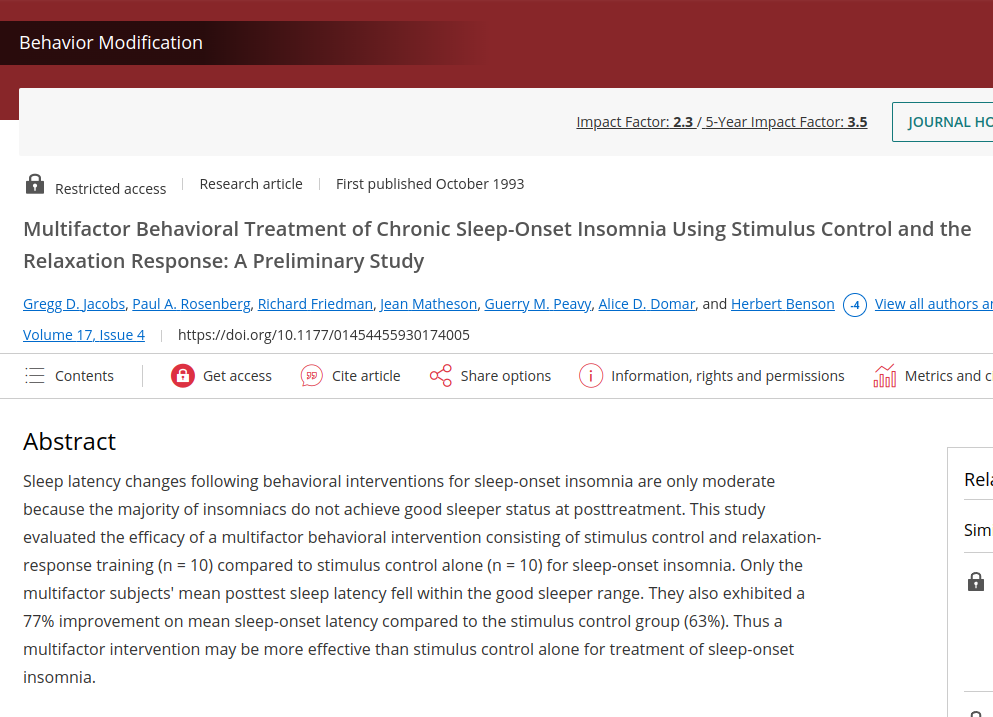The majority of individuals with insomnia treated with single behavioral interventions do not achieve normal sleep. In this study, individuals with chronic sleep-onset insomnia (n=12) were treated with a sequentially administered multifactor behavioral intervention consisting of sleep restriction, modified stimulus control, and relaxation training. They were compared to age- and sex-matched normal sleepers (n=14) prior to and following treatment using home-based polysomnography and power spectral analysis of pre-sleep EEG activity as dependent measures. Individuals with insomnia showed highly significant beneficial changes on EEG measures of insomnia, including a 75% reduction in sleep-onset latency, and did not differ from normal sleepers at posttreatment. Individuals with insomnia exhibited greater pre-sleep CNS arousal than normal sleepers at pretreatment and showed a significant reduction on this measure at posttreatment. Objective improvements in sleep were accompanied by significant improvements in self-report measures of sleep and mood. We conclude that a multifactor behavioral intervention consisting of sleep restriction, modified stimulus control, and relaxation response training is highly effective in moving individuals with chronic sleep-onset insomnia into the range of normal sleepers and may achieve its effect, in part, by reducing pre-sleep CNS arousal.
Home-based central nervous system assessment of a multifactor behavioral intervention for chronic sleep-onset insomnia
Publication
Behavior Therapy
Volume 24, Issue 1, Winter 1993, Pages 159-174
Abstract
Web and Email Links
Related Listings
Journal
Annals of the New York Academy of Sciences
Stress is a well-known risk factor in the development of addiction and in addiction relapse vulnerability. A series of population-based and epidemiological studies have identified specific stressors and individual-level variables that are predictive of substance use and abuse. Preclinical research also shows that stress exposure enhances drug self-administration and reinstates drug seeking in drug-experienced animals. The deleterious effects of early life stress, child maltreatment, a […]
Journal
PLOS ONE
Recently, much scientific attention has been focused on resting brain activity and its investigation through such methods as the analysis of functional connectivity during rest (the temporal correlation of brain activities in different regions). However, investigation of the magnitude of brain activity during rest has focused on the relative decrease of brain activity during a task, rather than on the absolute resting brain activity. It is thus necessary to investigate the association […]
Journal
Journal of American College Health
·
The authors examined the effect of a 6-week mind/body intervention on college students' psychological distress, anxiety, and perception of stress. One hundred twenty-eight students were randomly assigned to an experimental group (n = 63) or a waitlist control group (n = 65). The experimental group received 6 90-minute group-training sessions in the relaxation response and cognitive behavioral skills. The Symptom Checklist-90-Revised, Spielberger State-Trait Anxiety Inventory, and the […]

